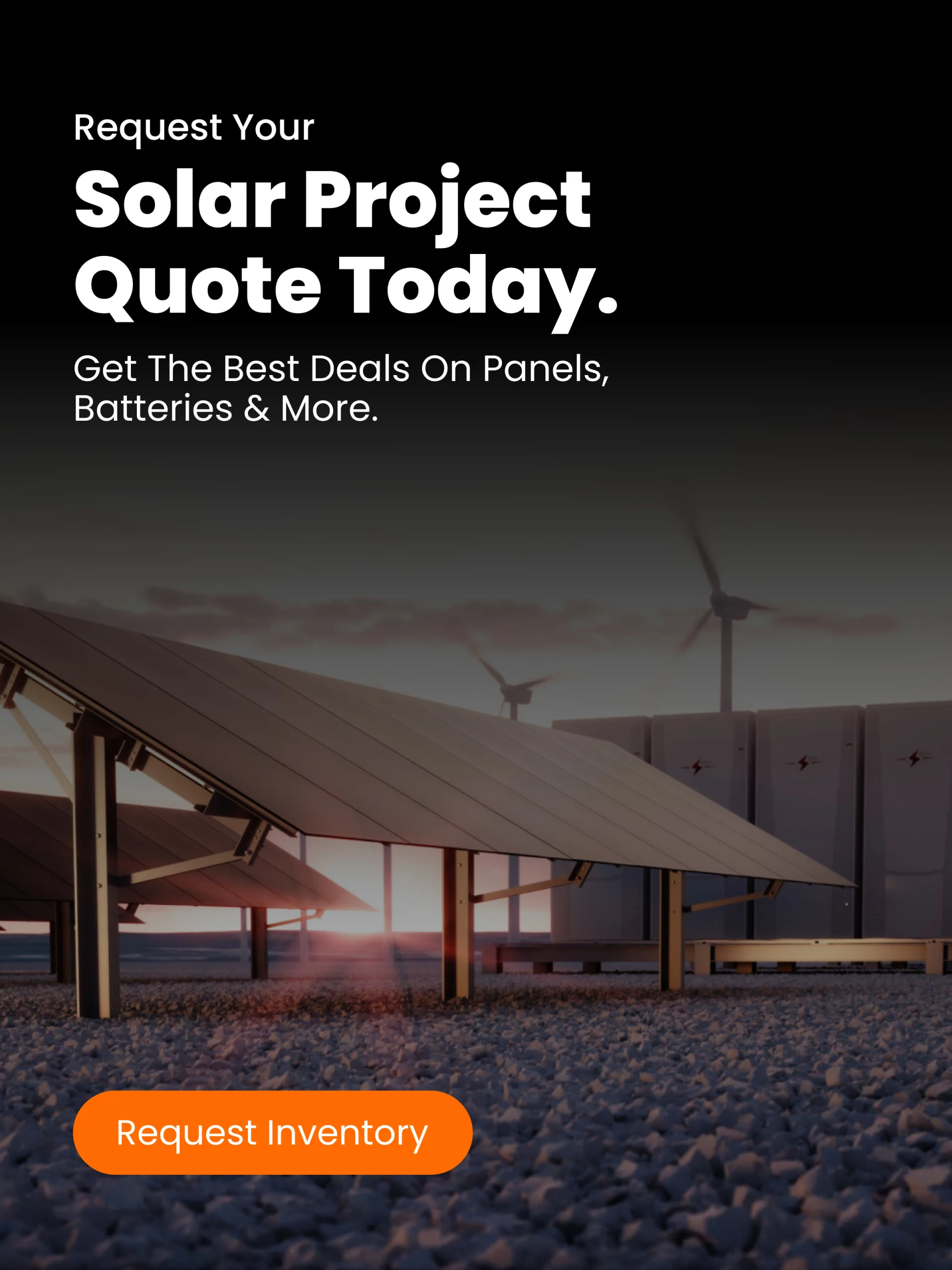Sunhub Buyers and Sellers
While it’s impossible to construct a solar project without the right equipment, procuring components is challenging for many solar EPCs and installers.
The process of sourcing solar components is cumbersome. It’s time-consuming for solar buyers to call and email around to determine who has inventory and wait to get a quote. Many lack direct contact with manufacturers and wait on third parties to check prices and stock. Even if contractors can find what they need, many have no room to discuss terms. This is especially true for smaller players, who also lack the ability to secure future production for advanced project planning. In short, budget, delivery and payment terms must all align for a successful purchase.
Seeing the critical market need for a way to replicate and expand access to buyer and seller solar negotiations that have traditionally happened over the phone, Sunhub founded its Solar Trader Platform. The industry-first online solar marketplace is the only one that allows negotiations and takes a bidding approach. The e-commerce platform not only provides real-time pricing and inventory information but also enables direct access between solar buyers and manufacturers, distributors, and other sellers through a convenient chat interface, making it faster and easier for residential, commercial and utility buyers to negotiate better pricing. Here’s a look at how the chat feature works and how it enables flexible transactions to get more deals done.
Sunhub’s chat feature
Once users create a free account, they can shop listings and follow up with bids, messages or questions. When you place a bid on a deal, you’ll be automatically redirected to the chat screen where you can continue to communicate further, see terms, and Accept or Decline the offer.
Sunhub’s team of procurement experts moderate anonymous price and term negotiations between verified buyers and sellers. Then, Sunhub captures their final agreement by auto-generating a legally binding contract.
Understanding project terms on Sunhub
The platform allows negotiating any sales terms possible and capturing those in a contract. Our generated contracts include all the traditional fields as well and an additional terms section that’s available for referencing any other agreement aspects.
Typical contract terms include:
Incoterms: Incoterms, common terms of sale, help define the responsibilities of buyers and sellers. Sunhub includes a dropdown selection for outlining 11 internationally recognized rules in its contract form to specify who will pay logistical expenses such as shipping and tariffs.
Cable type/connectors: Having the right connectors is necessary for integrating different solar components like panels, inverters and batteries. If you see a listing on the platform with a different cable type than needed, you can chat with the seller to see if you can negotiate another connection according to your project requirements.
Pricing: When you have contract flexibility, it’s not always about the cheapest price. Unlike platforms like eBay, the highest bidder doesn’t necessarily win. Terms can make a big difference in closing a deal. On Sunhub, manufacturers and distributors have the ability to sell to multiple buyers for different costs and terms. This approach mimics typical solar procurement negotiations that happen over the phone in a more convenient, efficient online interface.
Payment: Noting how much will be paid upfront and then along the way helps buyers and sellers plan better and manage cash flow. Those who can put more money down may negotiate a better deal.
Delivery: Determining the delivery schedule is especially important in larger deals. The right products must be brought to a project for installation at the right time. If needed, Sunhub can help buyers find sellers and fill in gaps with logistics and warehousing services. Most of the time, we can find storage within 10 to 15 miles of your project and arrange logistics for delivery.
Up-to-date contract terms are clearly displayed for both buyers and sellers throughout negotiations. As the custodian of the contract, once both parties reach final terms, Sunhub captures them in separate legally binding agreements for the buyer and the seller.
Negotiation scenarios
Term negotiation can play out in a variety of scenarios. For example, a seller may create a listing that is for pickup but may be willing to deliver for a higher price. Larger projects, such as utility-scale installations may require a specific delivery schedule over months. With many components coming from overseas, they’ll also have to clear customs and require trucking to the site. Buyers and sellers can negotiate payment, logistics and frequency terms to fulfill orders as needed.
Sunhub can also step in to fulfill logistics if necessary. For instance, maybe an installer has leftover inventory from a project to sell but can’t accommodate a buyer’s request for delivery. A company may also be looking to eliminate failure points and negotiate reserve inventory in case equipment is caught up in customs or gets delayed in shipping, but requires warehousing to hold it. Sunhub can fill in gaps with logistics and warehousing, often finding storage within 10 to 15 miles of a project.
Buyers and sellers may also find negotiations helpful when it comes to payment terms. Typically, solar contractors don’t get paid until they do the installation so manufacturers won’t receive payment for their products for some time. However, if an installer can make a deposit upfront, a manufacturer would benefit from better cash flow and therefore may offer a better overall price. Through Sunhub, it’s possible to adjust product delivery and net 30, 60, or 90 terms, or create a payment schedule based on other project milestones. This increased flexibility helps accommodate the business needs of both parties.
Likewise, both manufacturers and buyers can benefit from advanced project planning. Manufacturers can list forthcoming inventory information, allowing EPCs and installers to reserve components and lock-in pricing. This allows manufacturers to eliminate risk in offloading products while buyers benefit from a better deal and secured inventory. Usually, the larger the quantity, the better the price. It’s a win-win.
With the ability to negotiate terms and engage in transactions facilitated by Sunhub, buyers can enjoy efficient, secure agreements. Sunhub’s moderation of buyer inquiries also helps reduce noise for sellers by cutting out unreasonable bids and spam. Our overseeing of negotiations helps provide a better experience for everyone involved while our additional logistics devices help to fill in the gaps and get deals done.
Starting shopping and negotiating on our platform today to make solar procurement work for you.




